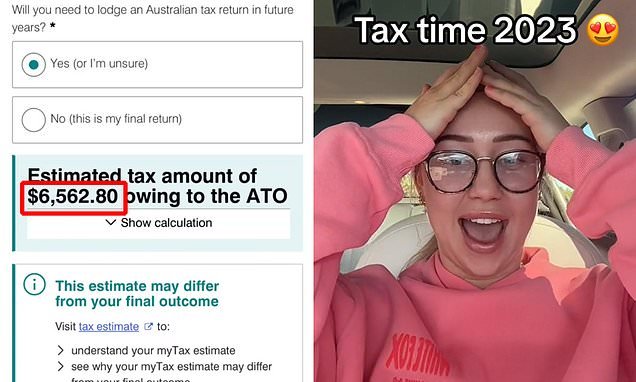Pupil mortgage repayments are rising for the subsequent cohort of scholars in England because the reimbursement threshold is to be dropped.
The federal government mentioned it’s making the coed mortgage system “fairer for taxpayers and for college kids”, however training consultants have mentioned the adjustments are “regressive” and can make low to center revenue graduates “considerably worse off”.
However why is that this the case and the way far more will college students be paying every month?
FactCheck takes a glance.
How will month-to-month mortgage repayments change?
While you repay your mortgage will depend on while you began your course, and the way a lot you repay will depend on your revenue.
Present full-time undergraduate college college students will likely be on reimbursement plan 2, however new college students will likely be on reimbursement plan 5.
Notice: When you began your course earlier than 1 September 2012 (reimbursement plan 1) the edge is decrease, however course charges had been additionally so much decrease. For the needs of this text, we’ll be evaluating plan 2 and the brand new plan 5.
Compensation Plan 2
When you began your course between 1 September 2012 and 31 July 2023 on the ‘reimbursement plan 2’, you’ll solely begin making 9 per cent repayments over the edge of £27,295 a 12 months, £2,274 a month or £524 per week within the UK.
Compensation Plan 5
When you’re beginning on an undergraduate college course or an Superior Learner Mortgage course on or after 1 August 2023, the brand new ‘reimbursement plan 5’ means college students pays 9 per cent of their revenue over the brand new decrease reimbursement threshold of £25,000 a 12 months, £2,083 a month or £480 per week within the UK.
This implies you’ll begin paying your mortgage again at a decrease stage and month-to-month funds will likely be increased at each stage.
That is how month-to-month repayments will change:
College students on the brand new plan gained’t be anticipated to make repayments till April 2026, however the size of the reimbursement interval is altering from till the mortgage is cleared, or 30 years, whichever comes first, to till the mortgage is cleared, or 40 years, whichever comes first.
And the curiosity added to loans can be altering.
These on plan 2 pay RPI (retail value index) inflation plus 3 per cent curiosity whereas finding out, and between inflation and inflation plus 3 per cent, relying on revenue, from the April after research end.
This can change to only the speed of RPI inflation for brand new college students.
A Division for Training (DfE) spokesperson informed FactCheck that the federal government has minimize rates of interest to RPI solely in order that debtors on the brand new Plan 5 “is not going to repay greater than they initially borrowed over the lifetime of their loans, when adjusted for inflation”.
Will the brand new system be ‘fairer’?
The DfE informed FactCheck the brand new system will likely be “fairer for taxpayers and for college kids, protecting it sustainable long-term”. However that is disputed by training consultants.
Dr Conlon, a Associate at London Economics, co-authored a current report assessing the impression of the proposed mortgage adjustments.
He informed FactCheck the evaluation exhibits the adjustments are “deeply regressive” and that the brand new plan will make most low to center revenue graduates “considerably worse off” as they may truly pay extra over their lifetimes as a result of decrease reimbursement threshold and longer reimbursement interval.
The adjustments to rates of interest additionally imply increased incomes graduates – particularly males who will usually be on increased salaries – “will likely be higher off” as a result of they may be capable of pay again their loans sooner than these on decrease incomes.
That is echoed by Chloe Area, Vice President of Greater Training on the Nationwide Union of College students (NUS), who mentioned that for ladies, solely the very prime earners will profit from these adjustments, however “most different feminine graduates will find yourself paying more cash over their lifetime due to the decrease reimbursement threshold and longer reimbursement interval”.
And regardless of the DfE saying the brand new system will likely be “fairer” for college kids, its personal equality evaluation of the brand new plan discovered that feminine graduates will certainly be negatively impacted as a result of elevated mortgage time period and “their usually lower-than-average lifetime earnings”.
Debtors of a white or black ethnicity from deprived backgrounds, or who dwell within the North, Midlands or South West, are additionally “more likely to see some adverse impression with elevated lifetime repayments underneath the reforms”, in addition to younger debtors.
The DfE additionally informed FactCheck the reforms will imply “greater than half of debtors will repay their loans in full, in comparison with the present fee of 20 per cent”.
However its evaluation mentioned the teams that “could also be extra affected by these adjustments” will “usually make decrease repayments” than increased earners and subsequently be “much less more likely to repay their loans in full”, counteracting the brand new system’s intention of extra folks paying again loans in full.


